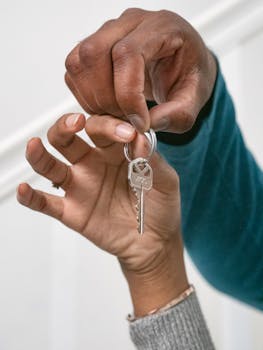
**
Are you certain you know the true market value of your home? A recent study by Quick Move Now, a leading real estate brokerage, reveals a startling statistic: homeowners significantly overestimate their property value, with an average overestimation of a whopping 16%. This news sends ripples throughout the real estate market, affecting everything from selling strategies to refinancing options. This article delves into the reasons behind this overestimation, exploring its implications and offering advice to homeowners seeking a more accurate valuation.
The Quick Move Now Study: Uncovering the Overvaluation Gap
Quick Move Now's comprehensive analysis involved examining thousands of recent home appraisals and comparing them to the owners' self-assessed values. The results unveiled a consistent trend: a significant disconnect between perceived and actual market worth. This 16% average overestimation represents a substantial financial gap for many homeowners. The study utilized advanced statistical models and controlled for various factors including location, property type (single-family home, condo, townhouse), and recent renovations. This robust methodology lends considerable weight to the findings.
Why Do Homeowners Overestimate Home Value?
Several factors contribute to this widespread overvaluation:
Emotional Attachment: Many homeowners have a strong emotional connection to their home, making it difficult to view it objectively. Years of memories and investments make it challenging to detach from sentimental value when assessing its market worth.
Renovation Costs Misinterpretation: Homeowners often overestimate the return on investment (ROI) from home improvements and renovations. While upgrades can increase value, the actual appreciation may fall short of the cost incurred. Understanding true market value requires separating emotional investment from actual market demand.
Comparison Bias: Focusing on recent sales of comparable properties in the neighborhood without considering key differences (lot size, condition, upgrades) can lead to inaccurate self-assessments. A seemingly similar home might have superior features justifying a higher price, creating a skewed perception.
Limited Market Knowledge: The housing market is complex, with fluctuating interest rates, economic trends, and local market dynamics constantly at play. Without access to comprehensive market data and professional expertise, homeowners may struggle to arrive at an accurate appraisal.
Information Overload (or Lack Thereof): The abundance (or scarcity) of information available online can lead to inaccurate conclusions. Relying on outdated listings or unqualified sources can create a distorted view of the current market.
The Implications of Overestimating Your Home Value
Overestimating your property's value can have significant consequences:
Difficulty Selling: Pricing your home too high can deter potential buyers, leading to extended market time and potentially even a price reduction later on. This can negatively affect your overall returns.
Failed Refinancing Attempts: If you’re aiming to refinance your mortgage, an overvalued property assessment can lead to rejection by lenders. Lenders conduct their own appraisals to verify the home's value, ensuring their investment is secure.
Financial Miscalculation: Overestimating your home equity can lead to miscalculations in financial planning. This can affect important decisions about investments, retirement, or other financial strategies.
Strained Negotiations: If you plan on selling your house, an inflated expectation can make negotiations tense and unproductive. Finding a buyer willing to pay an unrealistic asking price becomes much harder.
How to Get an Accurate Home Valuation
So, how can homeowners avoid falling into the trap of overestimation? Several steps can help determine a more accurate figure:
Professional Appraisal: A professional appraisal conducted by a licensed appraiser is the most reliable way to obtain an accurate market valuation. These experts use industry-standard techniques and possess deep market knowledge.
Comparative Market Analysis (CMA): A real estate agent can perform a CMA, comparing your property to recently sold similar homes in your area. This provides a more realistic picture of the current market value, considering recent trends and relevant factors.
Online Valuation Tools: While not as precise as a professional appraisal or CMA, online valuation tools can provide a ballpark figure. Use these tools as a starting point, remembering their inherent limitations. Always cross-reference with other valuation methods.
Consult a Real Estate Agent: Experienced real estate agents possess market expertise and can provide valuable insights. They can help you understand the nuances of your local market and offer realistic pricing strategies.
Navigating the Real Estate Market: Tips for Success
The Quick Move Now study serves as a powerful reminder of the importance of accurate property valuations. Understanding the factors contributing to overestimation and actively seeking professional guidance are crucial for making informed decisions. By employing the strategies outlined above, homeowners can gain a clear understanding of their home’s true value and avoid the pitfalls of unrealistic expectations.
Keywords: home value, property value, home appraisal, overestimate home value, real estate market, home selling, refinance, Quick Move Now, home valuation, comparative market analysis (CMA), real estate agent, home equity, home improvement ROI, selling a home, buy a home, property assessment, real estate trends, housing market, accurate home valuation.




















